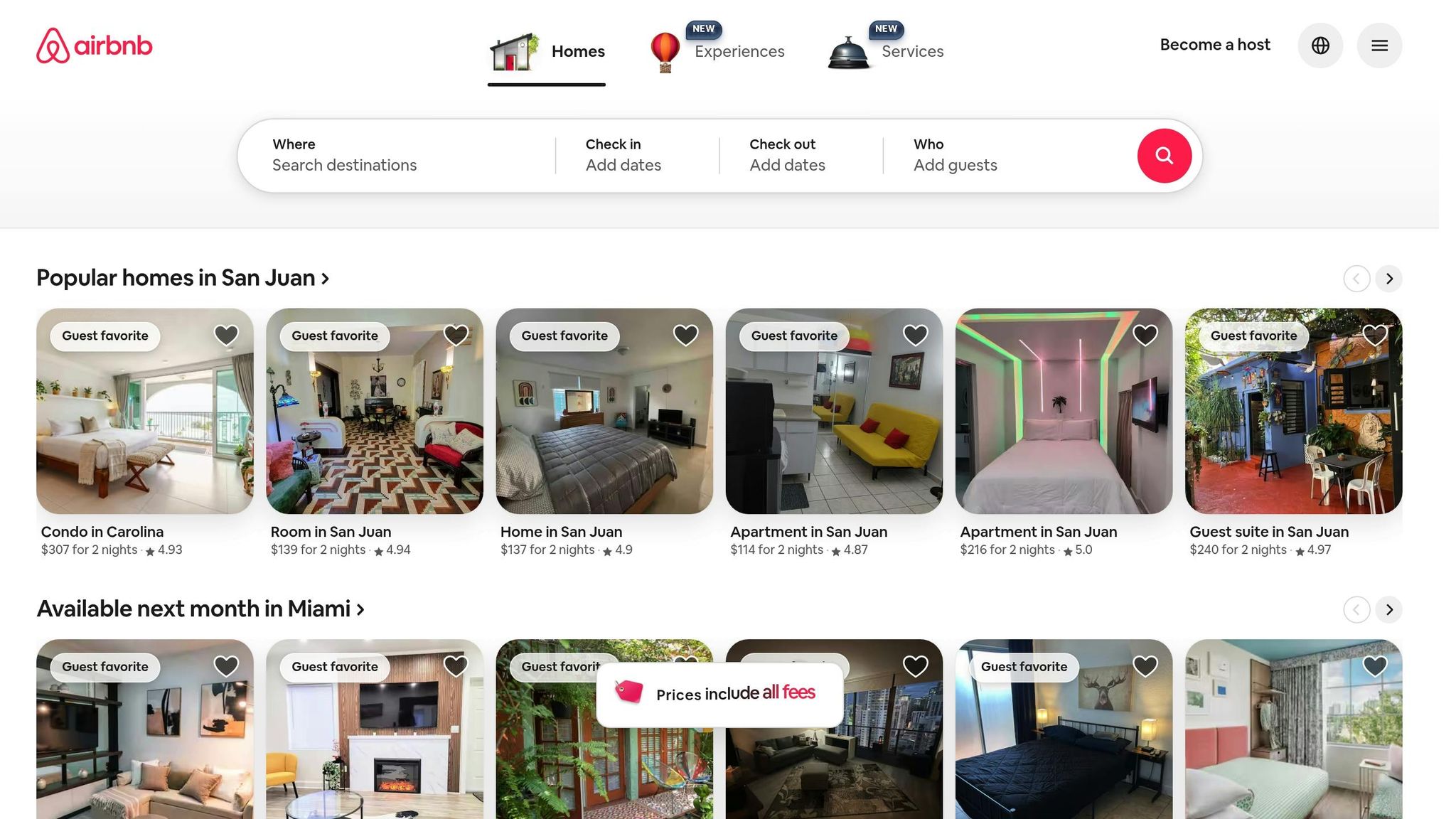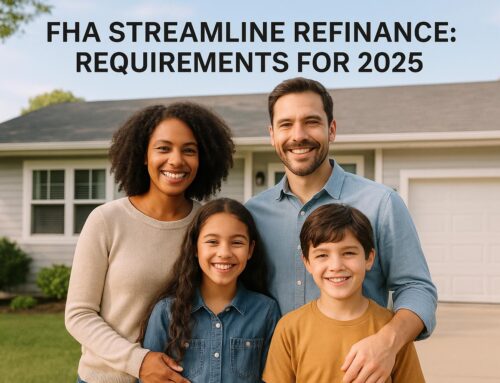Getting a mortgage for a second home or an Airbnb property is more challenging than for a primary residence. Why? Lenders see these as higher-risk investments, so they require bigger down payments, higher credit scores, and stricter rules. But don’t worry – here’s a quick breakdown of what you need to know:
- Down Payment:
- Second homes: At least 10%
- Airbnb/investment properties: 15–25% (sometimes more)
- Credit Score:
- Second homes: 620–680 minimum
- Airbnb/investment properties: 700+ preferred
- Interest Rates:
- Higher than primary homes (0.25–0.50% more for second homes, even higher for investment properties).
- Rental Income:
- Airbnb income can help you qualify, but you’ll need at least 12 months of documented earnings.
- Cash Reserves:
- 2–12 months of reserves may be required, depending on your lender and financial profile.
Quick Comparison Table
| Requirement | Second Home | Airbnb/Investment Property |
|---|---|---|
| Down Payment | 10% minimum | 15–25% (or more) |
| Credit Score | 620–680 | 700+ |
| Interest Rate | +0.25–0.50% over primary | Higher than second homes |
| Rental Income Use | Not allowed to qualify | Allowed (75% of income) |
| Cash Reserves | 2–6 months | 6–12 months |
Key Tip: Be honest with lenders about how you’ll use the property – misrepresenting it as a second home when it’s for Airbnb can lead to legal trouble. Whether you’re buying a vacation home or a rental property, preparing your finances, improving your credit score, and organizing documents early can make the process smoother.
Second home mortgage VS Investment property mortgage. What’s the difference?
Main Mortgage Requirements You Must Meet
Securing a mortgage for a second home or an Airbnb property comes with stricter financial expectations compared to a primary residence. Lenders see these properties as higher-risk investments, so they set the bar higher for approval. Here’s a closer look at the key requirements you’ll need to meet.
Down Payment Requirements
The down payment is often one of the biggest challenges for buyers of second homes or Airbnb properties. Unlike primary residences, which may allow down payments as low as 3%, these types of properties demand significantly more upfront.
For second homes, you’ll typically need to put down between 10% and 25%. Investment properties, including Airbnb rentals, come with even steeper requirements, often requiring 25% to 40% down[5][6]. If your credit score is on the lower side, your debt-to-income (DTI) ratio is higher, or you’re applying for a larger loan, you might face a minimum down payment of 20% to 25%[5].
Improving your credit score or lowering your DTI ratio can help reduce these requirements[4]. Since lender criteria can vary, it’s a good idea to shop around and compare terms to secure the best deal.
Credit Score and Debt-to-Income Standards
Your credit score and DTI ratio are critical indicators of how well you manage debt. For second homes and Airbnb properties, lenders set higher standards than they do for primary residences. These stricter benchmarks reflect the increased risk associated with non-primary properties.
Most lenders require a minimum credit score of 620 for conventional loans on second homes and investment properties. However, a score of 680 or higher can qualify you for better interest rates and terms. For investment properties, lenders often look for scores of 700 or above.
DTI ratio is another crucial factor. This ratio compares your total monthly debt payments to your gross monthly income. For Airbnb loans, many lenders prefer a DTI below 43%, though some may accept up to 50%[1]. Fannie Mae, for instance, allows a DTI of up to 45% for second home mortgages if you have at least a 660 credit score and make a 25% or larger down payment[2].
"A strong credit history reassures them that you’re financially responsible and capable of handling additional debt." – Sprint Funding [7]
If your credit score or DTI ratio falls short, focus on reducing your existing debt before applying. Even small improvements can boost your chances of approval and help you secure a more favorable interest rate.
Cash Reserves and Required Documents
In addition to credit and DTI, lenders will assess your cash reserves and review your documentation to gauge your financial stability. This is particularly important for rental properties, where income may fluctuate due to seasonal demand or unexpected vacancies.
For most wage earners, lenders typically expect at least two months of cash reserves. If you’re self-employed or have a weaker financial profile, you may need six months or more[8]. In some cases, having 12 months of reserves can help offset a lower credit score or higher DTI ratio[2].
The documentation process is also more rigorous than it is for primary residence loans. You’ll need to provide proof of income, tax returns from the last two years, bank statements, and information about your primary residence and any other properties you own[2]. If you’re buying an Airbnb property, consider keeping a separate account for rental income. This not only simplifies tax reporting but also provides clear documentation if you decide to refinance later[1].
For Airbnb properties, lenders may factor in projected rental income when evaluating your application. Fannie Mae allows borrowers to use 75% of documented short-term rental income if there’s a 12-month history – or up to 100% if you can show 24 months of consistent earnings[1].
Getting your paperwork organized early can make the application process smoother and demonstrate to lenders that you’re well-prepared for the purchase.
How to Use Rental Income for Airbnb Mortgage Approval
If you’re an Airbnb host, your rental income can play a crucial role in getting your mortgage approved. Many lenders now recognize Airbnb earnings as a valid source of income, which can strengthen your application by improving your debt-to-income ratio and boosting your overall qualifying income[9]. However, leveraging this income requires proper documentation and a clear understanding of how lenders evaluate it.
How to Document Your Rental Income
Start with your tax returns. Lenders typically want to see at least two years of tax returns to verify the profitability of your rental property. This often includes IRS Form 1040 Schedule E, which details your rental income and expenses[1]. Tax returns provide a reliable record of your actual income rather than just projections.
Maintain detailed Airbnb records. Keep a record of your Airbnb earnings, including booking history, occupancy rates, and monthly income. Lenders look for consistent bookings and positive guest reviews as proof of stable rental income[9]. These records should also highlight seasonal trends and average monthly earnings.
Use a separate account for rental income. Keeping your Airbnb earnings in a dedicated account simplifies tax reporting and makes it easier to provide clear documentation to lenders[1]. This also shows that you treat your rental activity as a professional business.
Ensure compliance with local regulations. You’ll need to prove that your rental operations comply with local laws. For instance, some areas, like New York City, restrict short-term rentals to fewer than 30 days unless the host is present during the stay[1]. Lenders will want to see evidence that your Airbnb business is operating legally[9].
Consult with professionals. A mortgage expert can guide you through the specific documentation required for your situation[11]. Since requirements vary, a professional can help ensure you meet all criteria[9].
"Renting out a room on Airbnb can be a great way to boost your income and increase your mortgage eligibility. However, it’s important to have a well-documented and consistent rental history to convince lenders of its reliability." – Jennifer Wilford, Broker and Owner, Coast National Mortgage[9]
Proper documentation is the foundation for how lenders evaluate your Airbnb income when calculating your loan eligibility.
How Rental Income Affects Your Loan Amount
Once your documentation is in order, the next step is understanding how lenders use your Airbnb income to determine your loan amount. Different calculation methods can significantly impact your borrowing power.
Fannie Mae’s approach is one of the most favorable for Airbnb hosts. Borrowers can use up to 75% of their documented short-term rental income if they have at least 12 months of history. For those with 24 months of consistent earnings, 100% of the income may be considered[1]. This means the more stable your rental history, the more income can be factored into your application.
Vacancy adjustments are standard. Most lenders apply a 75% income calculation to account for vacancies and maintenance costs[11]. This conservative measure ensures that your ability to make payments isn’t overestimated.
Lowering your debt-to-income (DTI) ratio is another benefit of verified Airbnb income. A strong, consistent rental history can help you qualify for a larger loan amount by reducing your DTI ratio[9].
Debt Service Coverage Ratio (DSCR) requirements also come into play. Lenders often require a DSCR of at least 1.25, meaning your rental income must cover debt obligations by 25% or more[1]. Additionally, you’ll need to show a net operating income (NOI) that exceeds debt payments by at least 25%, along with 3 to 6 months of cash reserves[1].
Projections for new properties may be allowed in some cases. Borrowers can use rental income projections if they can provide proof of at least a year’s worth of rental income from other properties they own[10].
To maximize your loan amount, focus on presenting a stable and well-documented rental income history. Lenders want assurance that your Airbnb income isn’t just a side gig but a reliable and profitable endeavor.
sbb-itb-8115fc4
Second Home vs. Airbnb Property Mortgages: What’s Different
When it comes to financing a property, how you plan to use it – whether for personal enjoyment or income generation – plays a major role in determining your mortgage terms. Lenders classify properties based on their intended use, and this classification directly impacts the requirements and conditions of your loan. The big question is: Are you buying the property for your own use, or do you plan to rely on rental income to cover costs?
If rental income is part of your strategy, lenders will consider it an investment property, which comes with stricter requirements.
Side-by-Side Mortgage Requirements
The mortgage rules for second homes and investment properties differ significantly. Here’s a breakdown of the key differences:
| Requirement | Second Home | Investment Property |
|---|---|---|
| Down Payment | Minimum 10% [12] | Minimum 20–25% [12] |
| Credit Score | 620–680 minimum [3] | 700+ preferred [3] |
| Interest Rate | 0.25–0.50% above primary home rates [2] | 0.50%+ above primary home rates [2] |
| Occupancy Rules | Must use at least 14 days/year; rent max 180 days [3] | Must occupy for fewer than 14 days/year [3] |
| Distance Requirement | Minimum 50 miles from primary residence [3] | Within 50 miles of primary residence [3] |
| Rental Income Consideration | Cannot use future rental income to qualify [2] | Lenders count 75% of anticipated rent [2] |
| Mortgage Insurance | Available [2] | Very difficult to obtain [2] |
| Property Units | Single-unit properties only [3] | Up to four units allowed [3] |
For second home mortgages, interest rates are generally 0.25% to 0.50% higher than those on primary residence loans, while investment property rates tend to be at least 0.50% higher [2]. Down payments also differ: second homes require a minimum of 10%, while investment properties typically demand 20–25% or more [12]. Credit score expectations are stricter for investment properties, often requiring 700 or higher, compared to a 620–680 range for second homes [3].
Occupancy rules are another critical difference. If you’re buying a second home, you must use the property for at least 14 days each year and can rent it out for no more than 180 days annually [3]. Investment properties, however, limit your personal use to fewer than 14 days per year [3].
Lenders take these distinctions seriously. They may even conduct unannounced visits to ensure the property is being used as stated in your application. Misrepresenting your intentions could lead to serious legal issues, including foreclosure [14].
Which Mortgage Type Fits Your Goals
Deciding between a second home and an investment property mortgage boils down to your financial goals and how you plan to use the property.
If your primary focus is personal enjoyment with occasional rental income, a second home mortgage is likely the better fit. This option is ideal if you can qualify for the loan without relying on rental income. Second home mortgages often come with lower interest rates, smaller down payment requirements, and a simpler approval process [2][15]. Plus, you may qualify for tax deductions on mortgage interest and property taxes, just like with your primary residence [15]. This allows you to enjoy family vacations while renting out the property during peak seasons – just be sure to follow the occupancy rules.
On the other hand, if generating rental income is your main objective, an investment property mortgage is the way to go. This type of loan is necessary if you need projected rental income to qualify for the amount you want [2][13]. Investment properties also offer tax benefits, including deductions for operating expenses like property management fees, maintenance, utilities, and depreciation [15]. Additionally, you can purchase properties with up to four units, which is a great option for serious real estate investors. Lenders will also factor in 75% of expected rental income when determining your eligibility [2].
Ultimately, the choice depends on whether you can afford the property without relying on rental income and how you plan to use it. Your financial capacity, long-term plans, and personal goals will guide you toward the right mortgage type. Just be upfront about your intentions – your decision will shape your financing terms, tax responsibilities, and legal obligations for years to come.
Steps to Get Approved for Your Second Home or Airbnb Mortgage
Securing a mortgage for a second home or an Airbnb property requires careful preparation. While it’s more intricate than financing your primary residence, following these steps can increase your chances of approval and help you lock in favorable terms. These tips build on the requirements discussed earlier, making the process smoother.
Get Your Financial Documents Ready
Start by organizing your financial paperwork to avoid delays. Lenders will typically ask for proof of income, tax returns, bank statements, and details about your primary home and any other properties you own. These documents help demonstrate that you have the financial stability to handle the new mortgage payments [2][16]. If you’re planning to use rental income to qualify, expect additional documentation requirements.
For rental income, maintain a separate account and keep all records and agreements well-organized for lender review [1][17]. When it comes to Airbnb properties, Fannie Mae allows borrowers to use 75% of documented short-term rental income with at least 12 months of history, and up to 100% with 24 months of consistent earnings [1].
Having everything in order will make your application process much easier.
Boost Your Credit Score and Lower Your Debt
Once your documents are ready, shift your focus to improving your financial profile. Your credit score and debt-to-income ratio are key factors in determining not just your approval but also the interest rate you’ll receive [19].
Start with your payment history, which accounts for 35% of your FICO score. Make sure all bills are paid on time, as this is critical for building a strong credit profile [20].
Next, tackle your credit utilization, which makes up 30% of your FICO score. Aim to keep your utilization below 30% of your available credit – ideally in the single digits for the best results [18]. Reduce credit card spending, pay off balances regularly, or request a credit limit increase to improve your ratio [18].
For debt reduction, create a realistic budget that allows you to spend less than you earn. Use strategies like the avalanche method (focusing on high-interest debts) or the snowball method (paying off smaller balances first) to systematically lower your debt [19]. Keep in mind that most lenders prefer a debt-to-income ratio of no more than 45% for second home mortgages [2].
Start these efforts several months before applying, as improving your credit score and reducing debt takes time. Even small improvements can lead to better loan terms.
Find the Right Mortgage Lender
After organizing your finances and strengthening your credit, the next step is finding the right lender. Not all lenders are equally experienced in financing secondary homes or investment properties, so it’s important to shop around. Compare offers from at least three to five lenders, paying close attention to fees, annual percentage rates (APR), and mortgage rates [2].
If you’re buying an Airbnb property, look for lenders who are comfortable factoring in projected Airbnb revenue when evaluating your application [21]. Many lenders now specialize in Airbnb financing, and some even have dedicated teams for this type of loan [21].
Be upfront about your intentions. Let your loan officer know if you plan to use the property as a vacation home instead of an investment property. This distinction can impact your interest rate, down payment, and other approval criteria [2].
For expert guidance, consider working with HomeLoanAgents, who specialize in second home and investment property financing. They can help you navigate the process and connect you with lenders suited to your situation.
Lastly, partner with a local real estate agent familiar with the area. Their knowledge of local rental markets and property values can provide valuable insights that may influence your financing decisions [22].
Your Next Steps to Mortgage Approval
Securing approval for a second home or Airbnb mortgage requires thoughtful planning and solid organization. A strong financial profile and well-prepared documentation are your best assets.
Key Points About Second Home and Airbnb Mortgages
When applying for a second home or Airbnb mortgage, your credit score and debt-to-income (DTI) ratio are critical. Most lenders prefer a DTI ratio of 43% or lower to approve a second mortgage[22]. These factors are especially important when dealing with the stricter requirements for secondary properties.
You can strengthen your application by increasing your down payment or maintaining a substantial cash reserve. For instance, having 12 months’ worth of cash reserves can improve your chances of approval, even if your credit score or DTI ratio isn’t ideal[2].
Keep in mind that interest rates for second home mortgages are usually 0.25–0.50% higher than those for primary residences[2]. Budget accordingly, as investment properties often require down payments between 20% and 25%[1].
For Airbnb mortgages, lenders typically look for 12 months of documented rental income. However, unlike investment properties, vacation homes cannot use projected rental income for qualification purposes[2].
Steps to Advance Your Application
Once your finances are in order, here’s how to move toward mortgage approval:
- Evaluate Your Financial Standing: Confirm that your credit score meets the lender’s requirements. Calculate your DTI ratio by reviewing your debts, and ensure you have enough funds for the down payment and closing costs[23]. Make sure your monthly income can comfortably handle both your current financial commitments and the new mortgage[23].
- Communicate with Your Lender: After submitting your application, stay in close contact with your lender. They may request additional information or clarify details, and quick responses can keep the process on track[24].
- Work with Experts: For tailored advice, consider partnering with HomeLoanAgents. Their knowledge of second home and investment property financing can help you navigate requirements and connect with lenders suited to your needs.
- Prepare for Closing: Review your Closing Disclosure carefully and arrange the necessary funds for the closing process[24]. By staying organized and working with the right lender, you’ll be well-positioned to secure approval for your second home or Airbnb mortgage.
FAQs
What are the key differences in mortgage requirements for a second home versus an Airbnb investment property?
The key differences between mortgages for a second home and an Airbnb investment property boil down to down payments, occupancy rules, and financial qualifications.
For a second home, lenders typically require a minimum 10% down payment. These properties are meant for personal use, which usually means you’ll need to live there for a significant portion of the year – around six months or more. Because they’re considered secondary residences, the loan terms are often more lenient compared to investment properties.
On the other hand, Airbnb or short-term rental properties are classified as investment properties by lenders. This comes with stricter requirements, such as a down payment of 20% to 30%, a higher credit score, and more substantial cash reserves. Lenders might also take projected rental income into account when assessing your eligibility. However, these loans often come with stricter terms and higher interest rates compared to financing a second home.
How can I use Airbnb rental income to qualify for a mortgage on a second home or investment property?
Lenders often factor in a portion of your Airbnb rental income when reviewing your mortgage application. Generally, they consider 75% of your verified income, provided you can show at least one year of documented earnings. If you’ve consistently earned rental income for two years, some lenders might take into account as much as 100% of your rental income.
To meet the requirements, you’ll need to supply documents like tax returns, proof of rental income, and possibly a rental history report. Showing steady income from your Airbnb property can boost your application by improving your debt-to-income ratio, which could make it easier to secure financing for a second home or investment property.
How can I improve my credit score and debt-to-income ratio to qualify for a second home or Airbnb mortgage?
Improving your credit score and debt-to-income (DTI) ratio is crucial if you’re aiming to qualify for a second home or Airbnb mortgage. Start by focusing on your credit score: pay down those high-interest debts, ensure every payment is made on time, and steer clear of any new credit inquiries. Also, keep your credit utilization in check – aim for it to stay below 30%, as this can significantly impact your score.
When it comes to your DTI ratio, reducing existing debt is key. Create a budget that prioritizes payments on loans with the highest interest rates. If possible, look for ways to increase your income, whether by picking up a side gig or negotiating a raise at work. Most lenders look for a DTI ratio under 43%, so the lower you can get it, the better your chances. Remember, even small, consistent efforts can make a noticeable difference in shaping a stronger financial profile.
Related posts








